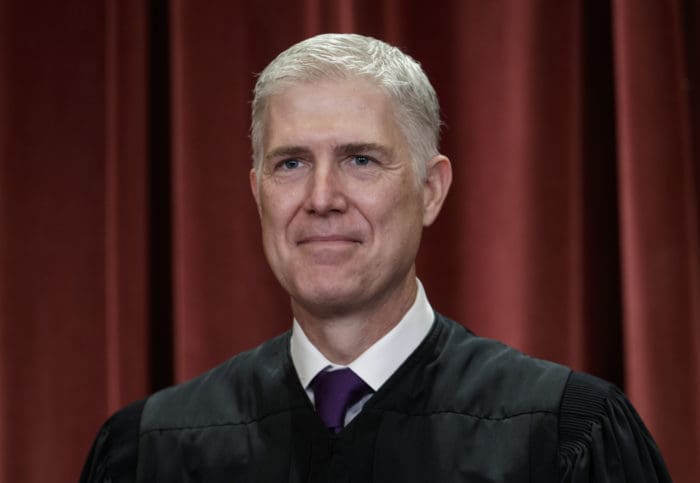Here’s a group of Justices you don’t see voting together often: Breyer, Ginsburg, Kagan, Sotomayor, and…Gorsuch. Together they made up the majority on a ruling that invalidates a part of the Gun Control Act that adds extra penalties to sentences for “crimes of violence” committed while in possession of a gun.
From The Hill:
Under the law, the men could have faced a mandatory minimum sentence of five years, with it rising to seven years if the gun is brandished and to 10 if it’s fired. Other minimum sentences can also be imposed based on the type of firearm used during the alleged offense.
The majority ruled that the law is unconstitutionally vague.
“In our constitutional order, a vague law is no law at all,” Gorsuch wrote. “Only the people’s elected representatives in Congress have the power to write new federal criminal laws. And when Congress exercises that power, it has to write statutes that given ordinary people fair warning about what the law demands of them.”
“Vague laws transgress both of those constitutional requirements,” he added.
Gorsuch wrote that the law in question “provides no reliable way to determine which offenses qualify as crimes of violence and thus is unconstitutional.” And he said that if the justices were to side with the government in the case, “we would be effectively stepping outside our role as judges and writing a new law rather than applying the one Congress adopted.”
The case, United States v. Davis, involved two men who were convicted of several counts of robbery. They were also charged under a separate federal statute which “authorizes increased penalties for using, carrying, or possessing a firearm in connection with any federal “crime of violence or drug trafficking crime.”
A dissent on the part of the other four conservative justices was written by Justice Kavanaugh.
In the dissenting opinion, Kavanaugh wrote that striking down the rule “is a serious mistake.” He cited statistics on gun violence, tying gun laws like the one challenged before the court as having “contributed to the decline of violent crime in America.”
“A decision to strike down a 33-year-old, often-prosecuted federal criminal law because it is all of a sudden unconstitutionally vague is an extraordinary event in this court,” he wrote.
And he warned that the impact of the ruling could be “severe,” arguing that it could lead to the early release of those convicted under the law and “thwart Congress’ law enforcement policies, destabilize the criminal justice system, and undermine safety in American communities.”
Kavanaugh also pointed to other laws throughout the country that similarly do not specifically define a kind of crime, but allow courts to gauge an alleged offense on a case-by-case basis.
